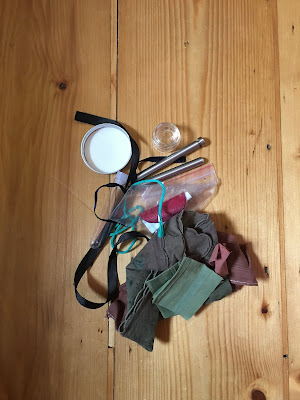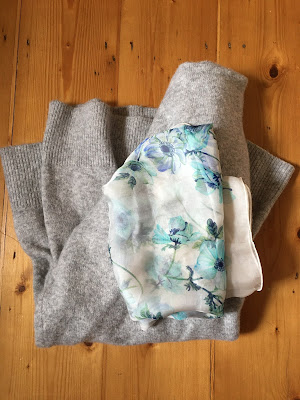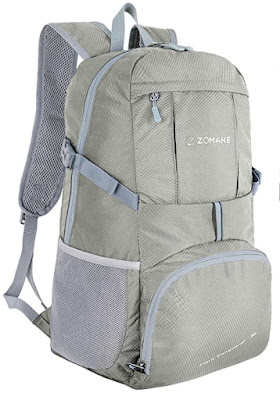I have this serious gripe with clothing manufacturers and retailers about information flow.
They want me to buy a garment based on the size of my body. The charts they supply describe the size of a woman. But that's not what I want to do. I don't want to tell them what size my body is, I want them to tell me what size their garment is. I already know what size my body is, and they don't need this information. What I don't know is what size their garment is. Once I have that information I can add it to what I already know about the size of my body and how I like my clothing to fit, and then I can decide if the garment will work for me. I don't what them to decide if the garment will work for me based on how they think it ought to fit. Because I like my clothes oddly loose. Even styles that are meant to be fitted. So although I am a UK size 16 (or L) woman, according to most of the sizing charts, I prefer their clothing in size 18/20 or XL or XXL, depending which make it is.
This drives me nuts. eBay private sellers are even worse. They'll sell a "midi length" dress. Well, what the hell is that? Upper calf? Mid calf? Lower calf? On whom? "Below the knee on me and I am 5'6"," they say. Yes, but what if you have a short back and long legs and I have a long back and short legs? Tell me the length of the dress!
I like my nightclothes to be seriously roomy. I hit problems with pyjamas because if the top and hips are as full as I want them to be, the trousers fall off because the waist is too big. So I wear nightdresses rather than pyjamas, because then they can't fall off even though the pit-to-pit measurement is between 55 and 60 inches, which is well over a foot wider than I am. I love my nightdresses. I bought old Anokhi robes (dressing gowns), soft Indian cotton in gloriously rich colours and wild patterns, and stitched them up the front to make a dress.
These —
They make me feel happy and cheerful, and they are so comfy.
It's important to have clothes and lovely-smelling things like soap and shampoo that rejoice the heart, because if you're on a tight budget the only other thing that does is cake.
But, back to the sizing, there is one firm I know that sells clothing by the garment size not by the woman size, and that's the Scottish company called the House of Bruar. Their charts tell you the exact measurements of the garment, so you can decide if it will fit how you want. Not only that, but they make their knitwear in every colour imaginable. So (you may have to wait for the sale) you can get a garment that will precisely suit your tastes, and how pleasing is that?
As for the two items I'm moving on today — I recently changed my bag and purse (US = purse and wallet). I swapped out two items in exchange instead of recording those things here, so here are the bag and purse I used to have, now on their way the the charity shop. I waited a while to see if I might want to keep both bags and both purses (for different times and occasions), but I like my new ones, so here are the old ones to go.
The purse (wallet) came from a charity shop in the first place. I got it from the hospice shop, and now it's on its way to the Shelter shop (for homeless people). I find it very satisfying that, if you look after your things carefully, the same item can go on making money for one charitable cause after another, things are kept out of landfill and mass-production is slowed down, but you can still have the fun and enjoyment of getting something new — at an affordable price.



































